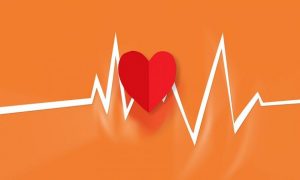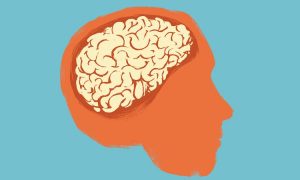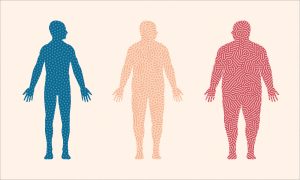Helen Goldenberg has been HIV-positive for 32 years. In 1984, when she was a 36-year-old assistant vice president at Bank of America, she was diagnosed with AIDS. Helen sat on her couch and waited to die.
Now she’s picking out a hat to wear on her 70th birthday.
As World AIDS Day is observed Thursday, more Americans than ever are being diagnosed with HIV in their 50s and 60s. One in 3 people diagnosed with HIV in 2009 was over the age of 50, according to the Centers for Disease Control and Prevention. That’s compared with 1 in 6 in 2001.
More than a quarter of Americans living with HIV are 55 or older. That number is on the rise for two reasons: like Helen, some were diagnosed with HIV in the '80s and '90s and are living longer thanks to an expanding number of HIV medications.
These medicines suppress the virus sometimes to such an extent that HIV cannot be detected in the blood. The newer regimens are simpler and have fewer side effects. Helen remembers taking fistfuls of HIV pills in the '90s. Now she takes two pills twice a day to keep the virus under control. She takes many more pills to treat her arthritis and macular degeneration.
The second explanation for the increasing number of older adults with HIV is one that some would rather not talk about: the sex lives of seniors. Older adults have sex. Lots of it. More than half of people over the age of 65 are having sex, according to a study by the University of Chicago Pritzker School of Medicine. About 1 in 4 of those over the age of 75 are sexually active, the researchers found.
But HIV is often thought of as a younger person’s disease. While young men ages 13 to 24 who have sex with men and people of color are most at risk of contracting HIV, older adults are increasingly vulnerable to the infection, said Dr. Clinton Haley, an infectious disease doctor at Baylor University Medical Center at Dallas.
"They're in their 50s and 60s and they're starting to date again. They're back on the scene. But they don't realize they are at risk of HIV," he said.
Haley sees patients who are newly divorced or widowed and are beginning new relationships.
Baby boomers missed out on the school sex education programs of the late '80s when the epidemic began to spread through the U.S., said Haley. "This age group didn't get as much STD and sex ed in school, and there's been a change of societal norms. People may have been experimenting during the '60s, but overall, things were more restrictive back then in terms of sex."
Let's talk about sex
Although older adults are sexually active, they are less likely than younger people to discuss sex with their doctor. Only 1 in 5 women and 1 in 3 men over the age of 50 discuss sex with their doctor, according to the National Social Life, Health and Aging Project.
“That dialogue needs to take place,” said Haley. “What I’m seeing is older people referred to me with subtle symptoms. They’ll say, ‘Oh, I’m suddenly having lots of yeast infections and I never used to get yeast infections.’ And the first thing I do is test for HIV, and it comes back positive, and HIV didn’t even cross their minds once.”
Helen said she didn’t believe her doctor when he diagnosed her with HIV in 1984.
"I didn't fit the picture of who I believed could get HIV. I thought my doctor didn't know what he was talking about," she said.
Now Helen serves as chair of the Ryan White Planning Council Committee in Dallas, a group appointed by Judge Clay Jenkins to plan the delivery of HIV services in the Dallas area. She also works as a community advocate to raise awareness about HIV among older adults and the African-American community.
Even 34 years into the epidemic, a strong stigma surrounds HIV, forcing many to never disclose their HIV status. Helen believes that stigma is even stronger in some communities including the black community. “When I was first diagnosed, my family said, ‘Don’t tell anyone. Don’t air your dirty laundry.’”

Fighting the stigma
Helen has made it her business to announce her HIV status publicly in the hopes of fighting the stigma. At a church service in Dallas a few years ago, Helen stood up and told the congregation she had HIV. The next Sunday, the pews surrounding her were empty. “Didn’t nobody want to sit next to me. They said, ‘Helen, if I sit with you they’ll think I have HIV, too.’ Church is supposed to be a safe space!”
That stigma, coupled with a lack of awareness, means older people with HIV are more likely to be diagnosed later in the course of their illness. But early diagnosis is key to limiting the harm caused by the virus. HIV infects cells of the immune system leaving the body vulnerable to diseases that a strong immune system could battle.
Aging increases the body's vulnerability to infectious diseases. For women, the lining of the vagina thins after menopause and is more prone to tearing, which can facilitate the spread of HIV. And post-menopausal women not concerned about becoming pregnant may choose to not have their partners use condoms, putting them at risk of infection with HIV and other sexually transmitted diseases.
Among people over the age of 65, gonorrhea infections increased more than 90 percent, syphilis cases rose more than 60 percent and chlamydia by more than 50 percent during 2010-2014.
Besides HIV, rates of sexually transmitted diseases are on the rise among older adults. Among people over the age of 65, gonorrhea infections increased more than 90 percent, syphilis cases rose more than 60 percent and chlamydia by more than 50 percent during 2010-2014.

Young people still contract the most of those infections, but rising rates of sexually transmitted infections among older adults are cause for concern because this age group is at higher risk of heart disease. HIV increases that risk.
“HIV causes chronic inflammation that puts you at an increased risk of getting heart disease,” said Haley. “HIV as well as the meds for HIV can also cause bone density loss.”
Diseases such as rectal cancers and lymphomas are more likely to occur in people with HIV. That means doctors need to screen older adults with HIV for these diseases. They also need to keep an eye on the sometimes overwhelming number of pills that older people take.
Other health problems
Like many people in their late 60s, Helen is dealing with health problems including arthritis and macular degeneration. She takes 23 pills each day, four of them for HIV. Some drugs such as blood thinners, heart medicines and cholesterol-lowering pills interact with HIV medicines to either intensify or cancel out the effect of the medication. Haley said it’s important to manage these drug interactions carefully.
But overall, he has good news for his patients living with HIV. “Whether you are 20 years old or 60 years old, the first thing I say is we’ll be able to manage the HIV ... You’re not going to die from HIV.”
Helen echoes that message. While she’s picking out a hat for her 70th birthday, she’s also looking for a man. “I went on a date yesterday,” she said, smiling. “I get approached by men all the time. But I’m looking for a stable relationship that will lead to marriage.”
Get tested for HIV
Dallas County Health and Human Services offers confidential testing for HIV and other sexually transmitted diseases at 2377 N. Stemmons Freeway. Call 214-819-1819 for more information.
For a list of clinics offering STD testing in the Dallas area, visit www.youthaidscoalition.org/std-testing-in-dallas-tx.html.
Join the Ryan White Consumer Council Committee for a panel discussion called "HIV & Aging" at noon Dec. 15 at Dallas County Health and Human Services, 2377 N. Stemmons Freeway.
Click here to view original web page at www.dallasnews.com












